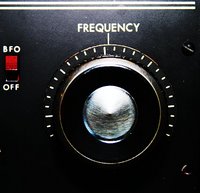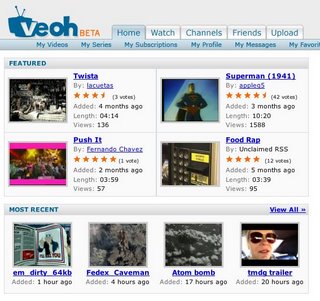The On-going Soap Opera Called "Where's David Lee Roth": He's back on the radio...without his voice
 On Wednesday, we played an updated version of "Where's Waldo", wondering where in the world was AWOL David Lee Roth? Was he fired? Suspended? Too sick from partying all night in Miami? Turns out he was disciplined and, in his words "suspended" for a couple of days so he could get his New York-based radio show back in line with management expectations. Which meant drastic changes, including letting go most of Roth's sidekicks.
On Wednesday, we played an updated version of "Where's Waldo", wondering where in the world was AWOL David Lee Roth? Was he fired? Suspended? Too sick from partying all night in Miami? Turns out he was disciplined and, in his words "suspended" for a couple of days so he could get his New York-based radio show back in line with management expectations. Which meant drastic changes, including letting go most of Roth's sidekicks.
David Lee Roth was back on-air with Free FM this morning after two AWOL days sounding just like a dog would look with his tail between his legs. Defeated. It was not "Free" Radio, it was simply uncomfortable radio. Sad, really. If "cringe" radio masters Opie & Anthony made you cringe from their outrageousness, the new version of Roth Radio made you cringe for something much worse: listening to a former King of the Rock World who -- literally -- had lost his voice.
As frequently as he could (almost after every change in topic or between phone calls), he told listeners he now was doing a new format implemented/forced upon him by CBS radio's management. He was simply now doing what he was told to do. I felt bad for him, actually, because he sounded almost lost in the wilderness, like "what do I do now?" Anyone who's felt pushed around by their bosses -- real or not -- and felt forced to do something you completely disagreed with knows how David Lee Roth felt.
Has the rock fire extinquished from Diamond Dave? Aren't Rock and Corporate supposed to clash? Doesn't Rock tear down walls corporate puts up? Just listen to Pink Floyd over the weekend, Dave. Here's Roth's new marching orders in memo form as reported by AllAccess.com (a radio and music industry news site) and shared by Roth on-air this morning:
Here's Roth's new marching orders in memo form as reported by AllAccess.com (a radio and music industry news site) and shared by Roth on-air this morning:ROTH shared a memo on-air from CBS NEW YORK programming honcho MARK CHERNOFF. Paraphrasing the key points of a reported 4-page memo, CHERNOFF says that DIAMOND DAVE needs to work on:
Meanwhile, last night Free FM's Jake and Jackie overnight show as well as today's midday fill-in Booker Show were talking all about the bizarre mood inside the station and how freaky it was working while security guards (who arrived when this latest DLR controversy happened this week) were wandering around protecting the facilities, as if there was a "situation" about to happen.
More Topical Interviews
Interview guests regarding subjects that are important to listeners, as opposed to sharing personal stories.
Shorter Bumpers
Bumper music runs too long... over a minute, and sometimes over two minutes.
Cut Back on the Use of Loops
Don use the same music under your breaks all the time.
Promote What's Coming Up
There's no promotion of upcoming elements.
Little Evidence of Prep
Improvement needed in this area.
The tone of CHERNOFF's email makes it clear that this isn't the first time he's discussed these matters with ROTH, and it threatens disciplinary action unless they are addressed. Obviously, the problems between ROTH and CBS RADIO run deep, as it is highly unusual for a new morning personality to be suspended - or to need a day off due to late night activities in MIAMI, depending on which story you believe -- on the first day of the SPRING book.
I tell you, while I'd rather hear better programming, this on-going behind-the-scenes, spilled-on-the-air soap opera is good stuff. It's in-fighting in the family. Waitaminute...doesn't that sound like old Van Halen problems? Was Eddie Van Halen right?
Rock on, DLR, rock on...
posted by Unknown @ Friday, March 31, 2006,
,
![]()
![]()
MySpace drop kicks 200,000 profiles: "As you can see, we've been looking into your files for some time, Mr. Anderson"
 Looks like News Corp has brought in Mr. Smith to put the clamps on all those MySpace Neos...just as MySpace is repositioning itself as a more friendly AdvertisingSpace.
Looks like News Corp has brought in Mr. Smith to put the clamps on all those MySpace Neos...just as MySpace is repositioning itself as a more friendly AdvertisingSpace.
In a move designed to help calm teen safety fears and a building perception that the site may be possibly a future brand image threat to corporate owner News Corp., MySpace deleted 200,000 site profiles deemed "objectionable".
Up until now, MySpace has been relatively censor-free. If you've ever spent any time browsing through the sites, it's filled with a chaotic jumble of mish-mash. It's estimated there are more MySpace profiles than there are people living in Canada. To most users, its lack of limitations and lawlessness sensation has been thrilling, helping stoke the spirit of freedom and endless possibility. Some use it to create elaborate lies and pretend personalities, allowing them to "be" whatever they have in their imagination that is not in their real life.
If you are a pimply 14-year old kid still suffering from teen angst and social disconnect, MySpace can allow kids to try on their idealized "popular" aspirations. They can be rock stars, hip hop moguls, video game designers, anime/manga artists, movie stars. They can set up fan pages for any subject of interest and attract new "friends".
However, to some, these fake digital extensions of their inner me have crossed the lines of personal safety or even libel laws.
The truth is...once something is no longer "underground" and becomes so popular it is mainstream, lawlessness can not work if it is a social networking community. Especially if it is web's #2 most-visited website (as it was in February). Otherwise, it is not social and people will get hurt -- emotionally or even physically for those adventurous, curious hook-up seekers.
Censoring and screening out profiles due to new standards probably signals the beginning of the end of MySpace as we know it now. The reason why MySpace has grown so quickly and massively is BECAUSE of its lawlessness. Everyday, we are all expected to follow loads of rules. On MySpace, you only have your own rules. You have experimentation. You have digital freedom with some anonymity.
That freedom apparently has just be curtailed. Probably to the dislike of many.
The site, which allows users to create their own profiles with details of their interests that can be viewed and linked to by other MySpace.com “friends”, was acquired by Rupert Murdoch’s News Corp last year for more than half a BILLION dollars and its phenomenal growth has placed it at the centre of the media company’s internet strategy.
In response to MySpace's success and the News Corp (Fox) acquisition, it has been reported that Viacom/MTV Networks wants its own social networking community and offered $750 million for Facebook.com...which was rejected for sale because that site's owners wanted $1.2 billion.
Lots of dollars being tossed around for these new enterprises. Social networking continues to be a major activity of internet usage and it will stay hot for many years. But will MySpace and Facebook still be important destinations 2 years from now or will some other site suddenly become the coolest on the planet?
My bet is on the later.
FT.com article
posted by Unknown @ Friday, March 31, 2006,
,
![]()
![]()
How word of mouth works online (psst!, tell a friend about this cool article)
 Viral videos and viral content is the hot media trend of this 1st quarter in 2006. Ever since the launch of sites like YouTube and Google Video, people are viewing videos -- and sharing them with their friends -- at record levels. VH1 has quickly picked up on the popularity by creating the weekly Top 20 TV show of "WebJunk", which Letterman highlighted on tonight's show.
Viral videos and viral content is the hot media trend of this 1st quarter in 2006. Ever since the launch of sites like YouTube and Google Video, people are viewing videos -- and sharing them with their friends -- at record levels. VH1 has quickly picked up on the popularity by creating the weekly Top 20 TV show of "WebJunk", which Letterman highlighted on tonight's show.
In the marketing world, delivering messages that consumers, in turn, recommend to their friends is the ultimate measure of positive impact (well, that and the continuing purchases of said product). "Word of marketing" is always highly desired (she'll tell her friend, who'll tells her friends, who'll tell her friends...and so on, and so on...you know the ad).
The Internet allows consumers to share with their friends things they love in a whole new way. And chances are, you are already actively doing it. You might even be blogging about it.
A study by Sharpe Partners revealed that 89% of adult Internet users in America share content with others via email. The recently released study on viral marketing also found that 63% of the study's respondents share content at least once a week and as many as 75% of the respondents forward this content to up to six other recipients (and so on).
Other interesting findings:
• 25% forward online content daily or most days while 23% do it several times a week.
• The most popular forwarded content is humorous material, with 88% of us forwarding jokes or cartoons. 56% forward news items or articles (if you like something here on the Jointblog, go ahead and forward it to your friend!)
• Interestingly, only 12% admitted to forwarding sexually provocative content
• The most likely online content sharer is a woman in her late 30's/early 40's who resides in the South or Midwest.
You can read the complete press release of the study here.
posted by Unknown @ Friday, March 31, 2006,
,
![]()
![]()
More "Where's David Lee Roth?"
 One month ago, former Van Halen lead singer -- and new CBS Radio/Free FM morning man -- David Lee Roth was on holiday for a week when his first morning radio rating trends from Arbitron started coming in. Being the replacement of Howard Stern, a lot of eyes were watching the results. And they didn't turn out good at all.
One month ago, former Van Halen lead singer -- and new CBS Radio/Free FM morning man -- David Lee Roth was on holiday for a week when his first morning radio rating trends from Arbitron started coming in. Being the replacement of Howard Stern, a lot of eyes were watching the results. And they didn't turn out good at all.
(5:30PM UPDATE AT POST END)
This week, the new numbers have been rolling in...and the results aren't much better. Still near the bottom. Once again, DLR is not around. And where's DLR now? Well, he started broadcasting his show from Miami Monday and Tuesday while also attending the annual Winter Music Conference. This morning, he was a no-show on-air...and the CBS Radio stations had to scramble. Free FM/NYC middayers JV and Elvis did mornings (with no explanation other than filling in for DLR) while evening show Booker and crew did middays. According to AllAccess.com -- a radio and music industry news site:
According to AllAccess.com -- a radio and music industry news site:[[ JV and ELVIS filled in for the absent DAVID LEE ROTH. They were also heard on ROTH's affiliates in Philadelphia, Dallas, Cleveland, and Pittsburgh.
It's that latest question that has been asked among many radio observers. DLR's latest "Where's Waldo?" only makes it a stronger question. However, the biggest question: Do the listeners care DLR is missing?
In Philadelphia, WYSP midday host BARSKY quipped, "JV and ELVIS ran a little long ... which isn't good to do on your first day ... I mean your fill-in day ... now everybody will think I know something ..."
So far, CBS RADIO hasn't responded to a request for comment on the DLR absence. Will it be permanent? ]]
UPDATE AT 5:30PM: Trade newspaper Radio & Records has the following update on the search for "Where's David Lee Roth", saying he will return on-air Friday morning:[[ CBS Radio tells R&R, "David Lee Roth has not been let go. He is on his way back from Miami and is scheduled to return to the air on Friday."
Rock stars have their flaky reputations...and DLR sure is doing nothing to alter it.
Roth's unscheduled day off on Wednesday certainly didn't help the rumor mill cycle down for the past 24 hours. According to Roth's website, he's in Miami, reportedly attending the Winter Music Conference, and the rumblings emanating from South Beach claimed Roth didn't get any sleep Monday night and needed some time off. ]]
92.3 Free FM MySpace webpage blog here
posted by Unknown @ Wednesday, March 29, 2006,
,
![]()
![]()
A Blogging Update On Who's Reading
 Here at the Jointblog, we're always looking for new media trends to publish articles that you'll want to read. That's the biggest problem still with blogging: the amount of readers is still small. Most blog readers are those interested in staying of the trend curve (which is part of the attraction).
Here at the Jointblog, we're always looking for new media trends to publish articles that you'll want to read. That's the biggest problem still with blogging: the amount of readers is still small. Most blog readers are those interested in staying of the trend curve (which is part of the attraction).
About 82% of our readers come from the U.S. -- mainly from large urban centers. Another 7% come from Canada. The rest come Germany, U.K., Australia, France, Italy, Mexico, and various spots throughout Europe, South America and Asia/Pacific Rim. Google is the main way people find the Jointblog, usually through one of the subjects we cover. They tend to read the main page and then either click through the previous month's archive or do a specific Jointblog search for something they are looking to read.
Okay, how about blog readers in general?
A new survey from The Gallup Poll organization finds that blogs, while catching on with Web users, haven't quite yet become required reading for most of the Internet population. Among Americans who use the Web (which is now 73 percent of the population), reading blogs appeared last on a list of thirteen things to do online. On average, one in five of those polled said they consult blogs "frequently" or at least "occasionally," but the 20 percent number trails other Web activities like instant messaging (28 percent), auctions (23 percent), videocasts and downloading music (22 percent each).
Not surprisingly, e-mail heads the list at 87 percent, followed by news and weather, 72 percent, and shopping and travel planning, both 52 percent. Nearly 60 percent said they "never" look at blogs, but there's an age gap: 28 percent of those 18-29 read blogs, while only 17 percent of those over 50 said the same thing. In total, 1,013 adults were surveyed nationally for the poll.
For more, click here
posted by Unknown @ Tuesday, March 28, 2006,
,
![]()
![]()
Grups are cool...and Has Our Celebrity Culture Peaked?
 Pick up a copy of this week's New York magazine or check it out online here. Excellent reading pointing out some media trends to watch. Two feature stories grabbed me. One ("Up With Grups") legitimized my fashion and style sense, explaining how we 40-year olds still rock it in our 20-something gear. Even came up with an updated description of our Gen X selves: Grups (we Star Trekkers understand the reference). Also, how our Grup resistance to growing-up in the image of our Baby Boomer parents has helped close the generation gaps with our own children (we "Grups" do rock). On the worry side, though, if our teen kids form their own style opposite of their Grup 'rents, are we just creating a new generation of future Republican prep namby-pampbys?
Pick up a copy of this week's New York magazine or check it out online here. Excellent reading pointing out some media trends to watch. Two feature stories grabbed me. One ("Up With Grups") legitimized my fashion and style sense, explaining how we 40-year olds still rock it in our 20-something gear. Even came up with an updated description of our Gen X selves: Grups (we Star Trekkers understand the reference). Also, how our Grup resistance to growing-up in the image of our Baby Boomer parents has helped close the generation gaps with our own children (we "Grups" do rock). On the worry side, though, if our teen kids form their own style opposite of their Grup 'rents, are we just creating a new generation of future Republican prep namby-pampbys? The other feature article asks "Has America's seeming insatiable appetite for celebrity finally begun to cool?" Well, "maybe" it has. Kurt Anderson observes that many cultural barometers have pointed down lately (magazine circulation and subscription figures are down for many celeb mags; can anyone say oversaturation?). Meanwhile, the gossip mags (like the Enquirer) are also down. Ratings on TV are down, too. Interestingly, all the recent market research we do at Joint Communications shows that the demand trend for enternatinment news and gossip is way down and among the weakest of programming items. People magazine -- launched in 1974 -- is considered the epicenter for today's modern celebrity watching; sales are also down.
The other feature article asks "Has America's seeming insatiable appetite for celebrity finally begun to cool?" Well, "maybe" it has. Kurt Anderson observes that many cultural barometers have pointed down lately (magazine circulation and subscription figures are down for many celeb mags; can anyone say oversaturation?). Meanwhile, the gossip mags (like the Enquirer) are also down. Ratings on TV are down, too. Interestingly, all the recent market research we do at Joint Communications shows that the demand trend for enternatinment news and gossip is way down and among the weakest of programming items. People magazine -- launched in 1974 -- is considered the epicenter for today's modern celebrity watching; sales are also down.
Have we finally reached the down-curve of celebrity gawking the likes of Paris Hilton, Lindsay Lohan, Angelina Jolie, Jennifer Anniston and hundreds of other so-called pop-culture stars? One can only hope. As Anderson says:"The Nielsen ratings for this year’s Oscars were down 8 percent, and for the Grammys 11 percent. During the last half of 2005, the Enquirer’s newsstand sales were down by a quarter and Entertainment Weekly’s by 30 percent. The American OK! is said to be unwell, the magazine Inside TV was launched and killed last year, and a magazine called Star Shop was killed before it launched. Like other American social tides, the fascination with celebrities has been cyclical, and after several decades of rising (as it also did from the twenties through the forties), perhaps it will now (as in the sixties) ebb."
 Meanwhile, I'll be waiting for Grup-favorite FHM's April 4th issue featuring the newly-annointed "Sexiest Woman in the World" Scarlett Johansson...
Meanwhile, I'll be waiting for Grup-favorite FHM's April 4th issue featuring the newly-annointed "Sexiest Woman in the World" Scarlett Johansson...
posted by Unknown @ Tuesday, March 28, 2006,
,
![]()
![]()
The Power of Radio, Espanola-style: How DJs Got 500,000 To March In LA
 Even in this digital age, radio still wields tremendous power to reach people. Radio -- with no subscription or Internet connection required, just the real thing -- can inspire, entertain or inform...or sometimes even do all three.
Even in this digital age, radio still wields tremendous power to reach people. Radio -- with no subscription or Internet connection required, just the real thing -- can inspire, entertain or inform...or sometimes even do all three.
Over the weekend, two popular DJs on Spanish-language radio stations in Los Angeles started a major pro-immigrant rally/peaceful protest which clogged the streets all the way to downtown City Hall.
Public officials estimate that more than 500,000 people showed up to march, a lot more than the anticipated 20,000 that might show. It turned out to be one of the largest demonstrations in Los Angeles' history.
Radio still reaches the masses, something other niche forms of radio can't quite say yet. And Spanish Radio showed its strong connection to the community...a strong reminder for all radio programmers to keep those community bonds strong.
They got the word out to the people, who not only listened...they responded.
click here
posted by Unknown @ Tuesday, March 28, 2006,
,
![]()
![]()
MySpace: It's hot now, but is it on the way to becoming a junkyard?
 MySpace has been in the news quite a bit in the last 18 months, especially since News Corp acquired it last summer as well as the negative news stories regarding how sex offenders are preying on unknowing teens. For the good and the bad, MySpace has grown into a massive online phenomenon in just a little over 2 years. It buried formerly-hot Friendster and opened up a whole new way for teens to express themselves and experiment with their (online) identities.
MySpace has been in the news quite a bit in the last 18 months, especially since News Corp acquired it last summer as well as the negative news stories regarding how sex offenders are preying on unknowing teens. For the good and the bad, MySpace has grown into a massive online phenomenon in just a little over 2 years. It buried formerly-hot Friendster and opened up a whole new way for teens to express themselves and experiment with their (online) identities.
According to on-line traffic counter Alexa.com, MySpace ranks as one of the 10 most popular sites on the planet.
Personally, when estimating MySpace as a media trend, it is only a blip in the bigger picture, which is the consumer demand seeking ideal new communities finding more people "like me". Call it the "Like Me Culture", if you like. We are all reaching out to find others that share our interests like never before, covering an amazing global range of possibilities. This is as true from the first Compuserve and NewsServ billboard posting clubs in 1991 as it is today. Only way better and more far-reaching.
MySpace's growth was created due to an unbelievably vast assortment of free tools and access now available to all web users, especially those with broadband access. The Web -- which only 15 years ago was still a text-driven form of interactivity accessed by baud rates of 9600kbs or less (remember that?) -- now is a high-performance graphical universe of unlimited possibility. And it is still trying to take shape. It's the search engines that are helping create that shape. They help us find the webpages we want on the ever-expanding Internet. Chaos is part of the reason why MySpace works. Most of the personal sites are chockablock and choking with excessive graphics and a huge list of "friends" who add whatever they want to the site through individual messages, links and jpgs or .mov files. It exhausting and so busy looking, it serves as a barrier for on-the-move, don't-waste-my-time adults. Which is why teens love it. Their parents hate it...so that gives teens the "okay" to do things in the relative "open" without risk of being discovered (future employers, they think...who cares, right?)
Chaos is part of the reason why MySpace works. Most of the personal sites are chockablock and choking with excessive graphics and a huge list of "friends" who add whatever they want to the site through individual messages, links and jpgs or .mov files. It exhausting and so busy looking, it serves as a barrier for on-the-move, don't-waste-my-time adults. Which is why teens love it. Their parents hate it...so that gives teens the "okay" to do things in the relative "open" without risk of being discovered (future employers, they think...who cares, right?)
That strength of chaos and "noise" making it unfriendly for adults and more attractive for teens is also its greatest weakness. Ultimately, if Google, MSN and Yahoo! or MySpace internal search engines can't properly index its webpages, the efforts of each webpage creator will go more and more unnoticed or forgotten. Which means MySpace is vulnerable to new competitive online community services offering a fresh clean slate, especially if they can manage search capabilities while growing. Facebook is one terrific example continuing to soar, taking a more disciplined approach of managed growth. It launched just about the same time as MySpace but was much more selective in its approval of new members because they had to be registered with schools who approved of the online club. In order to join, you have to be in either high school or college. Which helps keep out the 'rents! It's a way for peers and potential friends to find each other online. Their innovative ways of sharing music playlists and other Top 10 popularity items helps searchers find who and what they want.
Facebook is one terrific example continuing to soar, taking a more disciplined approach of managed growth. It launched just about the same time as MySpace but was much more selective in its approval of new members because they had to be registered with schools who approved of the online club. In order to join, you have to be in either high school or college. Which helps keep out the 'rents! It's a way for peers and potential friends to find each other online. Their innovative ways of sharing music playlists and other Top 10 popularity items helps searchers find who and what they want. Meanwhile, today's reality still shows MySpace as much more dominant right now than any other online community, with some 50 million+ members. That is a massive database. The question is will MySpace be able to keep that leadership position or will it quickly become a junkyard wasteland of dead webpages? Will the charming chaos that makes it quirky and cool burn out its popularity. Is there a limit to the amount of trash we are willing to sort through before giving up?
Meanwhile, today's reality still shows MySpace as much more dominant right now than any other online community, with some 50 million+ members. That is a massive database. The question is will MySpace be able to keep that leadership position or will it quickly become a junkyard wasteland of dead webpages? Will the charming chaos that makes it quirky and cool burn out its popularity. Is there a limit to the amount of trash we are willing to sort through before giving up?
Considering how disposable this pop culture society is -- especially online, it would not be surprising how quickly MySpace becomes the Internet's fastest cool-to-uncool casuality lesson. Trashy usually doesn't stay cool for very long.
posted by Unknown @ Sunday, March 26, 2006,
,
![]()
![]()
The Morphing of Tech Gadget Makers Into Content Creators (and Vice Versa)...Does It Work?
 Do tech companies and content companies make a good fit in a digital age? So far, the answer has been "no". We're about to see if Disney and Apple can turn that around. Can Steve Jobs wear two hats as well as he wears one? It doesn't look promising.
Do tech companies and content companies make a good fit in a digital age? So far, the answer has been "no". We're about to see if Disney and Apple can turn that around. Can Steve Jobs wear two hats as well as he wears one? It doesn't look promising.
It wasn't long ago that Sony was the tech company to beat. They pioneered transistor radios, better color TVs, invented the Walkman, the Betamax, the CD (along with Phillips), Playstation and so much more.
But these days, no one is excited that a product is a Sony. Whereas, they're still excited about Apple.
What happened?
Simple. Sony got in the "content" business - movies, music, the whole shebang. And, sometime in the 90s, the content side of Sony got worried about how easy it was to copy and replicate all that entertainment - without paying for it again and again. They didn't want Sony to make better "copiers".
Steve Jobs wasn't worried about that. He said "think different" and set out to make it really easy to use digital media to "share" music, photos and other emotionally charged, personal experiences. So, while the Sony folks wrestled internally (and the Microsoft folks, too), Apple took a commanding lead in technology, using iTunes as the stalking horse for their hardware.
Now, the tables are turned. Disney owns Pixar (all 6 movies and animators who can leave for a better job any time). Right now, it's fairly easy for an average high school student to crack the copy protect on a Pixar movie and make as many copies as they want. So, how much are 6 movies really worth as we look forward? Who's going to pay $19 for a DVD five years from now? Is the catalogue worth anything?
And, that's Steve's conundrum as he heads over to help Disney. He built a hardware company through relentless focus on useability and design (I am a happy Apple user and a huge fan). However, now he's split in two.
He needs to focus on Apple (there is no #2 in sight) to keep the tech edge. And, he needs to figure out how to reinvent a family entertainment company that has had huge success in re-selling old product in new formats - at the very time that Apple is trying to flatten the format platform so that digital is all you need (iPod
video, anyone?).
Oh sure, everyone is betting on VOD and new applications to push to cellphones. But, is Snow White going to push to cell phones? Is Toy Story the fit for iPod? Not likely. It's going to be short form. YouTube type stuff for the ADD digerati. And, a lot of it will be free - created by amateurs empowered by iMovie and other Apple creations.
My bet is that Steve will eventually tire of Disney (or they will have a nasty falling out) and he will head back to tech. So far, no one has straddled both the content and the tech horse. Will he be the one? What do you think?
posted by Unknown @ Sunday, March 26, 2006,
,
![]()
![]()
Emo Bands: Using the digital underground as a hot media trend to keep just below the mainstream
 Peer2Peer download and file sharing tracker BigChampagne has helped emo bands like Death Cab for Cutie and Fall Out Boy to bigtime success. It's one of the new bottom-up methods for bands to reach larger, more mainstream audiences. All those downloads and shared mp3 files create buzz, drive traffic to MySpace pages and ultimately sell concert tickets and merchandise, attracting attention to indie and major labels.
Peer2Peer download and file sharing tracker BigChampagne has helped emo bands like Death Cab for Cutie and Fall Out Boy to bigtime success. It's one of the new bottom-up methods for bands to reach larger, more mainstream audiences. All those downloads and shared mp3 files create buzz, drive traffic to MySpace pages and ultimately sell concert tickets and merchandise, attracting attention to indie and major labels.
No longer do A&R record guys have to waste time scouring clubs to find The Next Best Thing; all they have to do see what's hot in music file swaps and then go directly to sign the band. No wonder Love Monkey has failed as a new TV show...not realistic anymore.
"Emo" (that angst-filled rock style with depressed lyrics but uptempo neo-punk sound) remains just-below-the-mainstream...which keeps it cool with the kids.
Ross Rahaila writes on todays emo landscape, and how a handful of the popular bands are selling tons of albums, and calling the bands millionaires in the making.“Social networking Web site MySpace.com has played a huge role in allowing broke teens to sample a seemingly endless number of bands all in one place and without cost (or the guilt of illegal downloading). And by the time a band starts selling serious numbers of records and signs to a major label, many of the hardest-core fans have already moved on in search of the next big thing.”
For another reference article, re-read this blog posting from Wired in March here.
posted by Unknown @ Wednesday, March 22, 2006,
,
![]()
![]()
230 Million People Listen To The Radio Every Week
 Despite a loss in sexiness to new media Wall Street and Madison Ave darlings like the Internet, iPods and talent drain to satellite radio as well as a sharp decline in radio listeners willing to place a bumper sticker of their favorite station on their car, traditional (land-based or terrestrial) radio still packs a punch when it comes to audience reach.
Despite a loss in sexiness to new media Wall Street and Madison Ave darlings like the Internet, iPods and talent drain to satellite radio as well as a sharp decline in radio listeners willing to place a bumper sticker of their favorite station on their car, traditional (land-based or terrestrial) radio still packs a punch when it comes to audience reach.
According to ratings ratings provider ARBITRON, initial findings in their RADAR 88 study indicate that, over the course of a week, radio reaches over 230 million people, or 93% of all 12+ persons. Morning drive and PM drive each logged 77% of 12+ listening. Nearly 184 million people, or 74% of all Persons 12+, tune to radio on SATURDAY or SUNDAY.
For Persons 18+, radio reached over 94% of Persons 18+ who live in a household with minumum $75,000 income. And, 81% of Persons 18+ listened to radio while in their cars.
Meanwhile, the Internet reaches 72% of the US population in a given week (mostly for emailing, not surfing). 40 million iPods have been sold (about 13% of the population). And approximately 11 million are subscribers to satellite radio.
With a 230 million audience reach, radio still has power. It just needs a perception revamp and deepen its commitment for more innovation.
The complete RADAR 88 Radio Network Audience Report will be released next MONDAY, MARCH 27th.
posted by Unknown @ Tuesday, March 21, 2006,
,
![]()
![]()
All the world is NOT a stage; All the world is a cellphone
 My 12 year old wants a cellphone.
My 12 year old wants a cellphone.
"But Dad, all my friends have one", she says. Why is it this annoying phrase that has lasted for multiple generations keeps getting ressurrected? Is it because...it's so effective? Guilt, guilt, guilt...subversively and innocently delivered...now that's effective marketing. Especially when it comes out of the mouth of your 12 year old.
According to American Demographics, a majority -- 57% -- of teens aged 13-17 now have a cellphone, but that’s far below the 80% of adults 18-plus who own a phone. Still, for a glimpse of the future, look no further than what is now being labeled "Generation Wireless".
Or another new label is "SuperConnectors"
These kids have never known a world without cellphones. Apple rumors say an iPhone will be released before year-end that will blow away the Razr and Sliver with iTunes. Apple likes keeping everything in-house in its distribution and manufacturing system. With special attention to DESIGN -- the capitals are intentional and earned. All the world is not a stage, as Shakespeare may have believed; all the world is a cellphone.
Cellphone users aged 13-17 are connected to their phones by ear, eye and touch like no other age group. They are far more likely than other demographic groups to use a broad range of cellphone data services, and they will be first in line to try emerging offerings like cellphone TV.
Now, only 12% of 8-12 year olds really have a cellphone...far fewer than the "all my friends" line from my daughter.
Okay, when Apple releases its iPhone, my daughter will be 13. Maybe then she can have one.
Read on about cellphone usage with a related AdAge.com article here (free log-on required)
posted by Unknown @ Tuesday, March 21, 2006,
,
![]()
![]()
Once In An Internet Lifetime: Have You Asked Yourself, "How Did I Get Here?"

"And you may ask yourself
Does any other song foretell the advent of the Internet than the Talking Heads' "Once in a Lifetime"? How else could we today find answers, solutions, new cars, real estate or even a new wife/spouse/girlfriend?
How do I work this?
And you may ask yourself
Where is that large automobile?
And you may tell yourself
This is not my beautiful house!
And you may tell yourself
This is not my beautiful wife!"
While MTV was re-inventing pop culture on cable in the early '80s, David Byrne was telling us about our digital future (with a music video on MTV, of course....back when MTV actually played music videos).
Many people credit AOL's Windows-version release in 1993 as the beginning of the Internet Age we know today. At the time, users of what then was known as the World Wide Web mainly used limited graphical interfaces online like Compuserve or Prodigy (remember that?)
For the most part, most web activity was DOS- and text-based because of small computer hard drive memory capacities and slow (very slow) dial-up modem tranmission rates. The fast-popularity of AOL in 1993 and 1994 opened the Web's possibilities, delivering the easiest and most-convenient way to get "logged on" and surf. In many ways, those AOL days parallel the rise of Google a decade later.
Did you know the core beginning of AOL actually launched in 1985? At first, it was designed for use on Commodore business computers for data exchanging between terminals and later for Tandy computers. It's first graphical design was issued for Apple's Macintosh and Apple II computers in 1989. The Apple design fine-tuned the Web experience. Once released to the wider PC user base, Web usage exploded with new growth.
In the dozen years or so since the debut of Web browsers that turned the Web into a graphics-rich environment (AOL as well as Netscape and Explorer), the migration to life online has been all-encompassing. Below, a small sampling of the many milestones.
1995:
* Netscape goes public. Amazon.com and eBay launch. There are an estimated 100,000 sites on the web, up from some 623 in 1993.
1998:
* Google opens with a staff of 3 after a successful university thesis on Internet searching.
1999:
* Blogger, one of the first popular weblog publishing tools appears.
* Craigslist, which began as an e-mail list of arts events in San Francisco, becomes an online classified ads-listing company.
2000:
* An average 52 million adults are online, about 5 million with high-speed internet access at home. As the year closes, there are 25.6 million websites.
* Google handles more than 100 million queries a day.
2001:
* Apple introduces the iPod.
2002:
* 65% of American children ages 2-17 use the Internet, up from 41% in 2000.
2003:
* MySpace and Friendster launch, putting "social networking site" in the vocabulary.
* One-millionth iPod is sold.
2004:
* Audio blogging is dubbed podcasting, and how-to articles begin to appear.
* Flickr, the photo-sharing/social networking site, launches.
* A typical day sees 128 million U.S. adults online. About 60 million have high-speed connections at home.
2005:
* eBay has 79 million U.S. members, 168 million worldwide.
* MySpace has 40 million members.
* 87% of 12- to 17-year-olds use the Internet.
* Technorati tracks 22.9 million blogs.
* By midyear, Flikr has 775,000 users and is growing about 30% a month.
* LiveJournal reports 2.5 million active accounts.
* 10 million Craigslist users search some 6.5 million classified postings each month.
Source: Pew Research Center For The People & The Press: Mid-September 2005 Political Survey, September 15 , 2005
cool article on how the Web has impacted our understanding of media and information gathering, click here.
posted by Unknown @ Monday, March 20, 2006,
,
![]()
![]()
Behind the Numbers: Men Versus Women Online
 THE OLD STEREOTYPE THAT MEN are hunters and women are gatherers is actually an apt profile of online shopping behavior today. Online, men like to "dig," choosing a site and drilling down within it to hunt for information. Women, on the other hand, like to "scan" -- they are multitaskers who move through massive amounts of data quickly. These and other differences were uncovered in a recent report, "Gender on the Net: Why It Matters, Where It's Missing, How It Should Work," produced by interactive agency Resource Interactive and comScore Networks. The study tracked 326,000 online purchases over the course of a year, generated 250 hours of one-on-one engagement with 50 men and women, and incorporated custom data from 150,000 online households and a survey of 1,000 online participants.
THE OLD STEREOTYPE THAT MEN are hunters and women are gatherers is actually an apt profile of online shopping behavior today. Online, men like to "dig," choosing a site and drilling down within it to hunt for information. Women, on the other hand, like to "scan" -- they are multitaskers who move through massive amounts of data quickly. These and other differences were uncovered in a recent report, "Gender on the Net: Why It Matters, Where It's Missing, How It Should Work," produced by interactive agency Resource Interactive and comScore Networks. The study tracked 326,000 online purchases over the course of a year, generated 250 hours of one-on-one engagement with 50 men and women, and incorporated custom data from 150,000 online households and a survey of 1,000 online participants.
The study found that men prefer sites chock full of product pictures and specs, while women prefer to see the product in a lifestyle context. "Women prefer flatness," says Nita Rollins, executive director of marketing at Resource Interactive. "They don't want to be tripped up by undue amounts of product detail, whereas men prefer the detail."
full OMMA online media, marketing and advertising article here
Scientific American article on the differences between men and women here
posted by Unknown @ Monday, March 20, 2006,
,
![]()
![]()
Net Neutrality In Danger? Concerns About Media and Power (Don't Get Grifted!)
 I like my grift stories in the movies or on The Sopranos. No one likes grift when it happens to them.
I like my grift stories in the movies or on The Sopranos. No one likes grift when it happens to them.
"Grift". According to Dictionary.com:1. Money made dishonestly, as in a swindle.
2. A swindle or confidence game. A "grifter"?
A "grifter"? A person who swindles you by means of deception or fraud [synonyms: swindler, chiseller, chiseler, gouger, scammer, sharper, sharpie, sharpy].
What if Google -- Emperor of All Things Searched Online -- controlled your search results based on what they wanted you to see? What if search results were based not on effectively linking content with keywords and meta-tags but, rather, based on the amount of money directly paid to Google in advertising? The more grift received, the higher the ranking. No grift received? Well, sorry Charlie, no access to your site today. It's sort of like getting neighborhood protection from the gang doing the beatdowns.
It's sort of like getting neighborhood protection from the gang doing the beatdowns.
Bubbling under the surface of media trend watching is something of great importance. Learn this phrase because it is suddenly becoming a hot one: "Net Neutrality". In February, there were Senate hearings about the concern. Up until recently, the Internet/World Wide Web has always been "net neutral", meaning what you see is what everyone sees, provided it is legal. Everyone has the same access to information and sites on the web within the rules of law. When someone in New York City searches for Jointblog, the Google result is the same as in Bloomington, Illinois. The reason for this is the principle of net neutrality...a requirement for all telecommunications (which the Internet had always included).
However, as the Internet has shifted away from dial-up phone (TeleCom) access to broadband/cable access, the TeleCom controls are weakening as they apply less and less. It's Wild Wild West territory for broadband providers, with no laws maintaining "net neutrality". In other words, "net discrimination" is not only possible...it is likely due to the nature of capitalism. The market will fill the void of demand unless the law regulates, limits or outright bans it.
It's Wild Wild West territory for broadband providers, with no laws maintaining "net neutrality". In other words, "net discrimination" is not only possible...it is likely due to the nature of capitalism. The market will fill the void of demand unless the law regulates, limits or outright bans it.
The strongest application of Google's mandate of "Do Not Evil" is maintaining and protecting "net neutrality". If they ever infringed on it, the concept of the Internet would be greatly damaged, perhaps even irreparably. Imagine if Google decided to begin silencing its critics because of its control and power, eliminating sites one by one until only the adoring masses are left? Without net neutrality, it's possible.
For 15 years, the Internet has been a public trust, much like a utility. It gives people access to a vital resources -- information. Just as the water company or the electric company give access to other vital public resources. Let's make sure as we rev up access to the Internet through broadband, we don't lose the natural power of the Internet which exists because of net neutrality. If we let the broadband grifters to take control, expect a revolt. Because when the grifter is exposed, it is never a pretty ending.
Let's make sure as we rev up access to the Internet through broadband, we don't lose the natural power of the Internet which exists because of net neutrality. If we let the broadband grifters to take control, expect a revolt. Because when the grifter is exposed, it is never a pretty ending.
How does Bill Gates feel about "Net Neutrality"? Click here
Net neutrality Vs. Net neutering, click here
RealAudio video from February 7, 2006 US Senate Commitee hearing on Net Neutrality, click here
posted by Unknown @ Monday, March 20, 2006,
,
![]()
![]()
The Original Electronic Media
 The concept of "radio" has dramatically evolved in the digital era. Nearly all media electronic gadgets are wireless, planning to be wireless or wish they could be wireless. In order to be wireless, it needs radio "waves" to function. It needs a "transmitter" and a "receiver".
The concept of "radio" has dramatically evolved in the digital era. Nearly all media electronic gadgets are wireless, planning to be wireless or wish they could be wireless. In order to be wireless, it needs radio "waves" to function. It needs a "transmitter" and a "receiver".
Today, there are more than 33,000 radio stations around the world, with more than 12,000 in the US alone. Worldwide there are 2.24 billion radio sets, or one radio for every 2.5 persons. There's FM and AM stations. In addition, there are still people who use short-wave band radios to hear stations around the world. CB and "Ham" radios are mainly an artifact of Americana from a few generations ago, with a few clubs still in existence.
The world's first radio was actually invented in 1896, some 20 years after Alexander Graham Bell invented the telephone.
Stop and think about it for a moment: what is radio today?
A lot has changed.
While "traditional" forms of radio still exist, there are tens of thousands of internet radio stations and podcasters; cable and dish TV music streaming channels like Music Choice or Galaxie; and, of course, satellite radio sources like XM and Sirius. iPods are really custom radio stations. Cell phones are radio stations, too...storing downloads and streaming radio formats. The concept of digital/HD Radio began in Canada, Europe and Asia beginning in the mid-90s and is now beginning to happen in the US.
With all this going on with radio, I've got a wild thing for you to check out if you love music and history.
Edison Records. Ever hear of it? It was all the rage...more than 100 years ago.
Thomas Alva Edison of New Jersey patented and created thousands of designs and ideas. One idea he often doesn't get much credit for is the birth of the electronic media industry.
While Nikoli Tesla invented the concept of radio and Guglielmo Marconi patented the world's first radio in 1896 (or really the "wireless telegraph"), it was Mr. LightBulb who invented the first commercially-produced sound recordings which got played on the radio. Back then, they were made on cylinders and used on his phonographs. He recorded and preserved for the first time live performances to be played back later. This ability to play audio over and over at your leisure has been part of media culture now for more than a century, which later spawned Top 40 overkill and payola.
...but that's another subject...
There are organizations trying to preserve the original electronic media history, including many popular recordings from the Edison Record label. These libraries are organizations are making them available to stream online and even podcast on your iPod. Take a trip back and listen to very early forms of radio, popular speeches and styles of music before the automobile was invented...and listen to it on your COMPUTER or your iPod.
Yet another evolution for what defines radio...and where old media meets new media.
History of Cylinders with huge library of old music and radio recordings to stream here
More than 6000 cylinder recordings here
Article on radio history here
Wikipedia entry on radio here
Wikipedia entry on phonographs here
Subscribe to an RSS feed for Cylinder Radio and get notified in your news aggregator when a new show has been added here
posted by Unknown @ Sunday, March 19, 2006,
,
![]()
![]()
Attention autograph seekers: Google and Gawker partner up to take celebrity sightings to a whole new level
 Believe it or not, ABC's post-Koppel Nightline actually made me stop and watch last night.
Believe it or not, ABC's post-Koppel Nightline actually made me stop and watch last night.
They had a story about Gawker -- the popular blog about all things celebrity happening -- or rumoured to be happening -- in New York City.
Gawker recently partnered up with Google Maps to provide an amazing new tool for those who love celebrity hunting -- the Gawker Stalker.
Basically, it goes like this: Whenever Gawker is alerted by its legion of on-the-street, in-the-restaurant spotters armed with wireless email gadgets that a celebrity has been spotted somewhere in NYC, they immediately put it up on the Gawker Stalker map. The only buffer they provide: a 15-minute posting "delay" to give the celebrity a bit of a paparazzi barrier.
For example, the most recent update was a 2pm sighting today of Modonna shopping at Saks on 5th Avenue.
This takes celebrity-sighting to a new level. Try it. The Google Maps tool shows exactly where and when a star was spotted just moments after a sighting, including a blurb about what the celebrity is doing and whom they may be with at the time.
Says Gawker, "The celebrities, I'm sure, are not going to like this any more than they like being trailed by papparazzi."
Read more
Gawker Stalker blog here
posted by Unknown @ Thursday, March 16, 2006,
,
![]()
![]()
What's The Frequency, Radio? There's new rules for radio and it better act quickly
 Radio continues through a major transformation. While sat radio like XM and Sirius have been busy acquiring high-priced content and talent (a la Howard Stern), standard radio (you know, the AM/FM kind, sometimes known as terrestrial radio) has been cutting back on advertising, trying new formats and introducing new digital gadgets like HD Radio (which offers AM/FM radio digitally plus additional companion formats for stations not heard over the regular airwaves).
Radio continues through a major transformation. While sat radio like XM and Sirius have been busy acquiring high-priced content and talent (a la Howard Stern), standard radio (you know, the AM/FM kind, sometimes known as terrestrial radio) has been cutting back on advertising, trying new formats and introducing new digital gadgets like HD Radio (which offers AM/FM radio digitally plus additional companion formats for stations not heard over the regular airwaves).
Additionally, radio's ratings company -- Arbitron -- finally is making an aggressive push away from paper diaries to modern digital PPMs (portible people meters that automatically record radio listening habits).
While these changes may be a bit late, at least they are being done. And maybe still in time. Naturally, radio insiders and CEOs express their collective confidence about radio's long-term health. I'm a radio guy who still actively listens to radio for both professional reasons and personal enjoyment. I'm hopeful...and also realistic looking at the changed competitive landscape. Radio has a serious challenge ahead.
Radio was a Wall Street darling throughout most of the '90s. For the first couple of years after the dot com bust, radio still got positive marks from investors, even though a major talent shift to the Internet and digital media industries was taking place. It all changed when the iPod was released a little more than 3 years ago. Radio suddenly got wrapped into something called "old media".
Which brings us to today. Whenever a major advertiser/multi-media buyer outside the radio industry says something positive about radio, it's noticed. In terms of media buys, radio has long battled being secondary to TV and newspapers, despite reaching more than 90% of the entire US population every week. The Internet poses another challenge. The perception of radio as "old" is its greatest challenge.
And yet, according to Billboard's RadioMonitor, one major US advertiser said “Radio is at a critical moment in its history, on the verge of tremendous growth and poised for transformation.” Whoa. Okay, I'm intrigued.
But...
Radio "could squander its opportunity if it doesn’t act quickly. Radio needs to embrace culture change, put consumers first – “don’t lose sight of the listener” when embracing new technologies -- and “get comfortable with being uncomfortable.”
Amen.
To read the RadioMonitor article about what happened at the AdWeek/RAB "What The Frequency? New Rules for Radio" forum conducted this morning in New York, click here.
posted by Unknown @ Wednesday, March 15, 2006,
,
![]()
![]()
MySpace spin offs an emerging trend
 We like sharing ideas while media trend watching.
We like sharing ideas while media trend watching.
When a new idea creates a rapid success, the vacuum created behind it quickly fills in with others trying to copy and/or exploit the original idea. With low-to-no barriers of entry found on the Internet, web brand spin-offs happen all the time and often not in the control of the idea originator.
Springwise spotted something cool. Take MySpace, for example. Within 2 years, MySpace, the social networking website, is home to more than 54 million people, with more than half of them teenagers and college students. The MySpace model is now spinning off...for grownups. What MySpace has done for teens, CarSpace (launched February 2006), hopes to do for people who enjoy, love, obsess over cars. CarSpace is linked to Edmunds.com, the huge automotive information site, and features searchable member profiles, email accounts, photo galleries, and discussion groups about car models. And it has no known association with MySpace.
CarSpace is linked to Edmunds.com, the huge automotive information site, and features searchable member profiles, email accounts, photo galleries, and discussion groups about car models. And it has no known association with MySpace.
Considering how closely people identify with their cars, allowing them to connect with 'automotive friends' sounds like a winner. Especially for the site's publisher, who can lead advertisers to a very targeted and enthusiastic audience. PetSpace, BabySpace, HomeSpace, what are you waiting for? (And it doesn't hurt that iVillage was just sold for hundreds of millions dollars, either...)
posted by Unknown @ Wednesday, March 15, 2006,
,
![]()
![]()
Viral Video On Google: Dancing Stormtrooper
 Google Video went up in January and seems to be quickly gathering some quirky and popular videos postings.
Google Video went up in January and seems to be quickly gathering some quirky and popular videos postings.
While the Force may be strong in you, it might not be strong enough.
It's Wednesday. You need some relief. Buck up, young Skywalker. If you'd like a little laugh, how about a dancing stormtrooper?
posted by Unknown @ Wednesday, March 15, 2006,
,
![]()
![]()
Contagious viral videos are powering the latest Buzz Index
 Viruses are bad. But viral videos are hot, in high demand and definitely a media trend to watch. Literally.
Viruses are bad. But viral videos are hot, in high demand and definitely a media trend to watch. Literally.
Looking at the latest Yahoo Buzz Index, viral videos continue to be searched and actively passed around the web from inbox to inbox. Fevered searches on "viral video" jumped 51% on Yahoo! this week...does this mean office productivity went down the tubes as searchers sought out the next funny? This week's roundup of viral highlights kicks off with the goofball rap phenomenon started by SNL's Lazy Sunday clip. Attempting like mad to cash in on its newfound cred, SNL has increasingly given way to pre-taped digital shorts. A spot featuring actress Natalie Portman doing a wacky "hardcore" rap of her very own triggered searches on "natalie portman snl" and "natalie portman rap" while boosting Buzz on her just in time for the new movie "V For Vendetta". NBC later spoiled the party for YouTube fans when it demanded the clip pulled from the video repository and posted it to their own "official NBC viral site."
This week's roundup of viral highlights kicks off with the goofball rap phenomenon started by SNL's Lazy Sunday clip. Attempting like mad to cash in on its newfound cred, SNL has increasingly given way to pre-taped digital shorts. A spot featuring actress Natalie Portman doing a wacky "hardcore" rap of her very own triggered searches on "natalie portman snl" and "natalie portman rap" while boosting Buzz on her just in time for the new movie "V For Vendetta". NBC later spoiled the party for YouTube fans when it demanded the clip pulled from the video repository and posted it to their own "official NBC viral site."
For more, click here
posted by Unknown @ Tuesday, March 14, 2006,
,
![]()
![]()
A modern version of having the "finger on the button": Search engines control Internet power
 "The finger on the button."
"The finger on the button."
That's a Cold War phrase. Imaging just who might be the person in power to "push the button" unleashing nuclear weapons is the essence of political power. Only a few actually have that power. It's an exclusive club. And new invitations into the club are frowned upon. Just look at the current concerns with North Korea and Iran.
In the alternative universe called the Internet, the exclusive club of dominant search engines wield a similar kind of power. Although, instead of nuclear secrets, the power comes from secret algorithms. These exclusive club members have the power to control what we have access to, what we can find, what boundaries we can cross. They control the amount of ease we have finding what we need on the Internet.
Just like every country has laws enforced by the government, the Internet has laws often being "policed" by our ability to search. And it is search engines that attempt to enforce andf manage the laws.
Google and China is just one example. As are the attempts to "SafeSearch" filtered content to prevent unwanted search results (e.g. porn your kids might see). There is some content universally considered "offensive"; putting up barriers to access that kind of content makes sense.
However, the vast and ever expanding amount of content creates a barrier, too...an undesirable barrier. That's where the search engines get their power. They control how much of that barrier comes down.
Finding the ideal balance for search results that are both accurate and "safe" is the Internet's version of "the finger on the button"...the search button, that is.
Google, MSN and Yahoo! are the current search superpowers...but lurking in the wings in digital maven/mogul Barry Diller, owner of many interactive enterprises, including Ask.com (formerly AskJeeves.com). Ask.com has just relaunched, complete with a new TV ad campaign showing how the "old days" of Internet searching were for prehistoric man. The mondern man uses Ask.com instead.
Diller was the keynote speaker at the recent Search Engine Strategies (SES) Conference in New York City. At one point, he joked that if he pushed a button on a computer, the room might explode. With the power he holds, some in attendance may have agreed.
Among the top things on his mind:
• No quick fixes
• Patience is required
• It may take time before Ask.com can make the expected future reveneues.
Considering Diller's huge investment with Ask, it's amazing to hear a media mogul with a "finger on the button" who doesn't have the "I want it yesterday" mentality. Can this be a new media trend? Is this a new Barry Diller?
related article here
posted by Unknown @ Tuesday, March 14, 2006,
,
![]()
![]()
This Time It's Personal: Howard Stern's Latest Appearance on Letterman
 Howard Stern made an appearance Monday night on The Late Show with David Letterman. And, this time it was personal, not just a shill show promoting Sirius. It was Stern's first network appearance since the CBS Radio lawsuit filed 2 weeks ago. It was also his first time back on the CBS-owned Late Show since he left Infinity/CBS Radio in December after 20 years.
Howard Stern made an appearance Monday night on The Late Show with David Letterman. And, this time it was personal, not just a shill show promoting Sirius. It was Stern's first network appearance since the CBS Radio lawsuit filed 2 weeks ago. It was also his first time back on the CBS-owned Late Show since he left Infinity/CBS Radio in December after 20 years.
Viewing his appearance on the show, we witnessed one angry King of All Media.
Instead of being a glorified salesman for Sirius (like he was in December), Stern was back to his surly self doing what he does best: battling his enemy. His typical Letterman appearances over the years (usually at least once a year for the last 15 years) have him bashing the FCC or any of his critics. Sometimes he has shown up simply to self-promote. Last night, he was stating his defense while also going on the attack. He's always succeeded being in a "us vs them" position; last night, it seemed more personal: Howard vs. Les. The way Stern explained it, this battle would be a perfect pay-for-view event in a Las Vegas casino boxing ring and Michael Buffer's "Let's get ready to rumble!"
The way Stern explained it, this battle would be a perfect pay-for-view event in a Las Vegas casino boxing ring and Michael Buffer's "Let's get ready to rumble!"
Jointblog reader and radio program director/blogger Gregg Henson passed along links streaming the appearance (thanks, Gregg) (Windows Media Player):
Segment 1
Segment 2
Based on the pre-broadcasted show taping last night, Scott Collins reported on Stern's appearance on The Los Angeles Times' TV industry blog Channel Island.
He got it right...it was all that and more. His report is below:Howard Stern showed up at CBS' "Late Show with David Letterman" taping Monday evening in New York, wearing a "I Hate Les Moonves" T-shirt, complete with a picture of the CBS chief and his wife, "Early Show" co-host Julie Chen.
Some choice tidbits from the Stern, who's battling a $218 million fraud and breach of contract suit from CBS:
-- "I believe you are working for one of the biggest jerks on the planet," Stern tells Letterman. "You've worked for jerks and bullies who hide behind their press agents. Les Moonves is a bully."
-- Stern: "I'm not going to let Les Moonves do to me what he did to Dan Rather." He also suggests that Moonves fired former "60 Minutes" executive producer Don Hewitt.
-- When Letterman brings up Moonves' success at CBS, Stern shoots back: "Don't defend him. He'll sue you next."
-- Referring to Moonves' past acting career, Stern says: "CBS took a third-rate 'Love Boat' actor and made him CEO."
-- Stern also denies CBS' contention of a "secret deal" that enriched Stern at his new employer Sirius, and calls the lawsuit "a vendetta."
-- Letterman gets Stern to talk a bit about his plastic surgery, with before-and-after photos. The radio host says he had his nose "shaved down a bit." Stern to Letterman: "You can look like this too."
And here's the corporate statement from CBS:
We did not stand in the way of Howard appearing on our own airwaves tonight. We believe his appearance was his desperate attempt to distract attention from the facts of the case. We hope, in subsequent coverage of that appearance, the media is not seduced or fooled in any way. Howard Stern has done something wrong and we intend to demonstrate this wrongful conduct in court.
The Jointblog just forwards the info as it surfaces. Letterman quipped after hearing Stern present his side of the story, “Wow, I just don’t want to be anywhere near where the mortar hits.” Expect a bumpy ride ahead...and wear flak jackets.
MediaWeek also has a report here
posted by Unknown @ Monday, March 13, 2006,
,
![]()
![]()
Productive Digital Agenting: Media Keeping Alumni In The Loop
 It's March Madness and colleges across the country are getting ready for the big NCAA basketball tournament (my favorite time of the year).
It's March Madness and colleges across the country are getting ready for the big NCAA basketball tournament (my favorite time of the year).
While the games are exciting, there's an important media backstory going on, too.
The NCAAs are also a time for colleges to get back in touch with their alumni. And more and more, college alumni departments are communicating directly with their alumni to keep them in the action. LIke mine.
This evening, I received an email I consider to be a great example of productive digital agenting. Basically, I received information that was useful and valued; despite it being bulk mail, it wasn't junk and wasn't identified as spam, either.
It's effective email delivering a message I want to receive.
Essentially, the email alerted me to something I did not know. My alma mater -- Illinois Wesleyan University in Bloomington -- wrote to say the school's basketball team is playing in the NCAA Division III Final Four later this week in Salem, Virgina. The semi-finals are this Friday, with Amherst vs Wittenberg in game one and Illionis Wesleyan against Virgina Wesleyan in game two. The national championship will be played this Saturday.
The national championship will be played this Saturday.
The email also told me how to obtain game tickets, hotel information and suggested flight/travel sites with alumni discount plans. Additionally, they announced that the games would be streamed live through www.ncaasports.com and that ESPN would be broadcasting an "Outside The Lines" segment this Wednesday night at 11:40 central.
Lastly, they gave a helpful tip, saying if I experienced any problems accessing the site, I should go to the IWU Web page for help.
Less than a few years ago, most universities didn't have the ability to inform their alumni with timely information giving a wide range of digital and media options and recommendations. A big difference now.
As a proud alum, I was thrilled with the news and will be cheering on my Titans. And I'll do my best word-of-mouth with other alumni to let them know. The end result: it reconnects me with a brand I value. Something all email marketing campaigns you initiate and/or receive should do.
THAT'S productive agenting in this digital age. Message delivered and received...
GO TITANS!
posted by Unknown @ Monday, March 13, 2006,
,
![]()
![]()
CSI Gets More Real: New Software Helps Develop Hunches
 We love our sleuthing and problem solving. From Sherlock Holmes to the Hardy Boys and Nancy Drew to the Law & Order and CSI TV shows, we like playing private detective collecting clues and solving crimes before it is revealed. We piece observations and insights together along with the actual facts and historical experience to arrive at our conclusion.
We love our sleuthing and problem solving. From Sherlock Holmes to the Hardy Boys and Nancy Drew to the Law & Order and CSI TV shows, we like playing private detective collecting clues and solving crimes before it is revealed. We piece observations and insights together along with the actual facts and historical experience to arrive at our conclusion.
Or, looking at it more simply, we love our problem solving games like the daily crossword, Soduku or even Wheel of Fortune.
We pride ourselves as human beings having good intuition or hunches, something a computer could never have. After all, people still beat IBM's Big Blue at chess. Right?
All those CSI shows on TV use some pretty fancy sci-fi worthy computers and software programs to help them analyze evidence for crime clues. Those electronic tools are great at identifying analytic results, linking zeros and ones together digtially to show correlations and other statistical likelihoods.
However, humans are better at taking the analytic information and understanding the true pattens. Otherwise, Gil, Horatio and Mac wouldn't have jobs and we wouldn't tune in.
Those CSI sleuths may have some new real-life competition: computers that can determine "hunches".
The latest Wired magazine presents a twist on evolutionary computation called the "hunch engine", which promises to let computers produce everything from more-attractive photos to new pharmaceutical candidates, one nudge at a time.
posted by Unknown @ Monday, March 13, 2006,
,
![]()
![]()
Media Trend Watching With Media Execs: The digital future is still unclear
 Executives in the music, Internet and technology industries agreed during the annual Digital Music Forum conference in New York earlier this month that they are still experimenting with digital-music business models, but some key players strongly disagreed with some of the experiments undertaken to date.
Executives in the music, Internet and technology industries agreed during the annual Digital Music Forum conference in New York earlier this month that they are still experimenting with digital-music business models, but some key players strongly disagreed with some of the experiments undertaken to date.
Among the highlights:
• Universal Music Group executive Larry Kenswil scolded XM and Sirius Satellite Radio broadcasters for launching time-shifting satellite-radio/MP3 players, which he called “cannibal machines.”
• XM senior VP Jon Zellner doubted that terrestrial radio stations that simulcast multiple digital programs on HDRadio will lessen listener declines to local (or terrestrial) radio.
• Music Choice president David Del Beccaro warned of a consumer backlash if consumers are forced to pay multiple subscription fees to get the same content delivered to multiple platforms, such as PCs, set-top boxes, satellite radios and cellular phones. (note: I agree!)
• CBS Radio programming president Rob Barnett pointed to MTV's initial launch as a commercial-free cable channel and successful transition to a channel with commercials. HD Radio stations plan to offer commercial-free simulcasts “for two years, at least,” he said.
• However, Motorola senior product manager LaSean Smith wasn't so sure. Smith, whose responsibilities include the launch of Motorola's iRadio service, warned that “once people experience commercial-free music, they will not go back.”
related article here
posted by Unknown @ Monday, March 13, 2006,
,
![]()
![]()
Howard TV is Coming and In Demand
 Howard Stern has been off my TV since last summer, when the final broadcasts of his E! show expired. No Stern on TV, no Stern on the radio, unless you are paying Sirius for his new satellite show.
Howard Stern has been off my TV since last summer, when the final broadcasts of his E! show expired. No Stern on TV, no Stern on the radio, unless you are paying Sirius for his new satellite show.
Howard Stern is coming back to TV, though...uncensored, no E! Channel blurring and on demand. So you can have your Stern when you want your Stern...and all his wack pack, too.
Richard having a brazilian wax job last month on his Sirius show? Wait a minute, can I have the blurring option if I want it?
One of the country's largest cable systems -- Cablevision -- has agreed to make available beginning tomorrow (March 14) "Howard TV" for Cablevision's digital-cable customers as subscription/on demand services, giving subscribers who don't have Sirius a new way to enjoy Howard's previous shows. Good news for me since Cablevision is my provider.
Is this Pay-per-vert?
Along with the Sirius radio shows, Howard TV will also feature films from Stern's recently announced April Film Festival and as much as 100 hours of on-demand product per month.
Cablevision joins Adelphia Communications Corp., as well as In Demand owners Time Warner Cable, Comcast Corp. and Cox Communications Inc., in distributing Howard TV, which gives Howard TV dominant cable customer reach across the country.
full story
posted by Unknown @ Monday, March 13, 2006,
,
![]()
![]()
The Return of a Great Brand That Hits You In The Gut
 After 21 months of production purgatory, the Sopranos drag you back in just when you thought you were out. We're family...there's no leaving your family!
After 21 months of production purgatory, the Sopranos drag you back in just when you thought you were out. We're family...there's no leaving your family!
The 6th season of The Sopranos premiered last night on HBO. It was more than a return of a great show with great acting and great writers. It was the return of a great brand. Tony's gained some heft, Carmela's loving the new Cayenne, Meadow's dirty dancing with her boyfriend/fiance while deciding what internship she wants (will it be law?) and AJ's partying it up. The sins keep piling up (greed, lust, pride, sloth, gluttony, wrath, envy)...Tony's been dodging the bullet for a while, getting lucky along the way.
Great brands evolve (Tide...now with blue crystal Oxidol and color-safe bleach!) and we love them more because they keep improving. The Sopranos could have returned mildly and slowly warm us up, to rebuild the viewing relationship. No way, not in this family. Bang! I'm back in!
posted by Unknown @ Monday, March 13, 2006,
,
![]()
![]()
Custom Cellphone Wallpaper...Cool!
Labels: Audience, cellphone, Cool Idea, customizing, Jointblog, Logo, New Media, wallpaper OK, anytime we bump into a claim for 'world's first', our media trend watching radar perks up. If you're looking for a cool idea, how about this...
OK, anytime we bump into a claim for 'world's first', our media trend watching radar perks up. If you're looking for a cool idea, how about this...
Custom cell phone wallpaper.
San Francisco's START MOBILE, a gallery selling art for cell phones. Part of the START SOMA gallery, the venture sells thousands of original works of new art from hundreds of established and underground artists, to be downloaded onto mobile phones. Wallpapers are billed $1.99 USD, with the artist receiving a small cut.
Cool Idea: If you are in media, why not contact Start Soma and have their artists put a pop culture spin on your logo integrated into art for your audience's cellphone? Or, better yet, set up an affiliate marketing relationship to help sell the cellphone wallpaper artwork through your company's website, where you pick up a small cut for each transaction driven through your website. Good for your NTR initiatives.
posted by Unknown @ Sunday, March 12, 2006,
,
![]()
![]()
A New Kid in Town: Is There A New Google Search Challenger...from China?
 A new search engine driven by innovative "artificial intelligence" algorithms and reportedly supported by impressive financial backers is ready to be the latest Google search engine challenger. Their goal: outwit the search leaders with smarter search results. They want make searchers "happy by helping them find relevant results to their queries."
A new search engine driven by innovative "artificial intelligence" algorithms and reportedly supported by impressive financial backers is ready to be the latest Google search engine challenger. Their goal: outwit the search leaders with smarter search results. They want make searchers "happy by helping them find relevant results to their queries."
Can Accoona (pronounced "ah-coon-na") become a verb like Google? Inspired by the phrase "Hakuna Matata" (Swahili for "don't worry be happy") from The Lion King movie, the new search engine uses new A.I. techniques to help sort out what they say are more effective search results. Accoona -- founded in late 2004 between U.S. and Chinese partners -- has been refining its technology quietly in beta mode for more than a year. They officially launched earlier this week. They say their algorithms enable retrieval of more results for stories associated with the search term and not just containing the term.
Accoona -- founded in late 2004 between U.S. and Chinese partners -- has been refining its technology quietly in beta mode for more than a year. They officially launched earlier this week. They say their algorithms enable retrieval of more results for stories associated with the search term and not just containing the term.
There are 3 sets of search functions: "News", enables users to instantly cross-reference search keywords to a suite of frequently used data-search categories. Users are presented with a set of eight drop-down buttons that allow results to be prioritized; refined by time period, media outlet, company name, country, or state; cross-referenced to a list of people; or differentiated by media type.
Another set, called "Business", enables users to cross-reference keywords to a database that melds partner Dun & Bradstreet's extensive database with Accoona’s own database of business information.
The third function is for "Web" searching, utilizing the standard searchbots and spyders to link sites with keywords and search terms. One interesting feature of Accoona is its ability to search based on acronyms, autoantonyms (words that can take two or more opposite meanings), eponyms (names from which other names are derived), hypernyms (a word that has a more general meaning than another), and hyponyms (a word with a more specific meaning than another).
Will Google be humming "Hakuna Matata" or will this new engine run out of fuel? One new battle to watch develop...
related article here
posted by Unknown @ Sunday, March 12, 2006,
,
![]()
![]()
YouTube Has New Competitor To Watch in Veoh
 Over the Web's 15 years, there have been many who proclaimed the Internet is the new television. And there have many attempts. Mark Cuban's Broadcast.com probably was the first in a dial-up world, streaming live audio. The second phase came mostly through live events, such as the Victoria Secret's fashion shows and Live 8, as well as the introduction of underground peer-to-peer file sharing of video.
Over the Web's 15 years, there have been many who proclaimed the Internet is the new television. And there have many attempts. Mark Cuban's Broadcast.com probably was the first in a dial-up world, streaming live audio. The second phase came mostly through live events, such as the Victoria Secret's fashion shows and Live 8, as well as the introduction of underground peer-to-peer file sharing of video.
We now seem to be in the third phase of Internet TV since the launch of viral audio and video sites. The spoof site JibJab played a major role in political comedy for the 2004 presidental elections. The birth of podcasting has allow anyone to "broadcast". Current TV let the people be newscasters. Bloggers influence journalists (Instapundit vs. Dan Rather). Air America Radio is listened more from its internet streaming and timeshifted show podcasts than its over-the-air "terrestrial radio" broadcasts.
This third phase for Internet TV was cemented last Fall with the new video iPod and iTunes selling downloads of music videos and both new and classic TV show episodes.
The video iPod has spurred a flood of new video download site interest, including the quickly popular YouTube (launched in December), MTVN's purchase of iFilm, and the launch of VH1's "Web Junk 20" delivering the best viral videos of the week.
There's another Internet TV site to check out and watch develop. It's called Veoh Networks and yes, they want to reinvent television, too. They've been in beta since last Fall and don't have YouTube's instanteous usage...but they may have something.
Like many other sites (including YouTube and iTunes), Veoh distributes video. However, Veoh offers some things not available elsewhere. For one, their videos are DVD-quality, and even high-definition. That's great for the consumer and better than most of sites, where streams are low-fi and shaky, even on broadband. More importantly, the economics of Veoh is different, allowing the people who create the videos in the first place to either charge for downloads or share in advertising revenue. So, if you create some viral video and upload it to Veoh, you actually get to share in the revenue.
It still has a long way to go to build buzz and attract fresh content...but the idea is good. Let's see if it sticks or if it is just more static.
Sidenote question: Yahoo! says they are moving away from creating custom video content and offer more user-created content makes me wonder: why is Yahoo! still mirroring broadcast.com forwarded to the the main yahoo.com portal? Why doesn't Yahoo! free up broadcast.com again and let it be a prime viral video location on the web?
related blog posting here.
posted by Unknown @ Sunday, March 12, 2006,
,
![]()
![]()
Boing Boing Blocker: Current TV Video On How Google's SmartFilter Is Blocking The World's Most Popular Blog
 Al Gore's Current TV venture has been broadcasting since August and is gradually finding a feel and a focus. They still don't have much of a cable or satellite distribution network. But they are actually producing some good content.
Al Gore's Current TV venture has been broadcasting since August and is gradually finding a feel and a focus. They still don't have much of a cable or satellite distribution network. But they are actually producing some good content.
When launched, Current TV was explained as a new television network with the interactivity of the Internet. The idea? Get some cheap digital cameras, easy-to-use laptop-based editing tools and a media platform and give them to young people to televise their "lives" (at least how they view it) to document what happens to them in ways that we don't see on CNN and the broadcast networks.
Most viewers of Current TV (or are they called "current viewers"?) actually use the webisodes and web content. They encourage voting of the top VC2 videos, attract smart advertisers (such as the 2-minute American Express commerical directed and starring M. Night Shyamalan (Sixth Sense, etc.), host social communities, posted viewed created ads and maintain an active blog covering a wide range of subject matter.
In fact, the web site has a blog-like feel in its style and content. Something like BoingBoing - the world's most popular blog at the moment, accoerding to measuring service Technorati. Which makes this blurb I found on BoingBoing surreal. A Current TV story about BoingBoing and how it is being blocked in certain countries because of occasional "offensive" matter (Darth Tater, anyone?), which is posted on BoingBoing as a story. So it comes full circle (and helps guarantee people like me find these stories when media trend watching online).
Which makes this blurb I found on BoingBoing surreal. A Current TV story about BoingBoing and how it is being blocked in certain countries because of occasional "offensive" matter (Darth Tater, anyone?), which is posted on BoingBoing as a story. So it comes full circle (and helps guarantee people like me find these stories when media trend watching online).
I love "open" blogs with active reader contributers like BoingBoing and Fark.com...it's truly is a place with real personality driven not by corporations but by the people.
One of the backbones in Google searching is something they call "SafeSearch". This is a tool Google installed based on their constant web indexing to help manage potentially "offensive" content (remember, Google says "Do No Evil"). The default when you turn on your computer and log on to Google places the SmartFilter control in moderate mode, which can be activated. However, if you don't control your computer's passwords, you can effectively block websites and content (great for parents trying to prevent accidental porn sightings from the kids). Which brings us to this Current TV story how the world's most viewed daily blog is now having problems being blocked by Google's SmartFilter/SafeSearch in some select countries (say, China) and even for some regions in the USA.
Which brings us to this Current TV story how the world's most viewed daily blog is now having problems being blocked by Google's SmartFilter/SafeSearch in some select countries (say, China) and even for some regions in the USA.
Here the Current TV video recap reporting the way Google's SmartFilter blocks Web access to the entire populations of certain countries.
posted by Unknown @ Friday, March 10, 2006,
,
![]()
![]()















